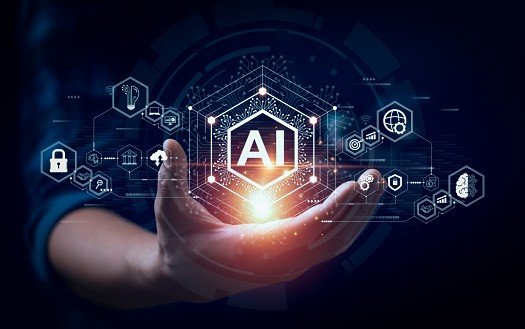Artificial Intelligence (AI) has emerged as one of the most transformative technologies of the 21st century. Its rapid development and integration into various sectors have led to a profound impact on industries and everyday life. From healthcare to finance, transportation to entertainment, AI’s influence is reshaping the world in unprecedented ways.
At its core, AI refers to the simulation of human intelligence in machines that are programmed to think, learn, and problem-solve like humans. The advancements in machine learning, natural language processing, and robotics have propelled AI to new heights, enabling it to process vast amounts of data and derive insights previously unattainable. This capability has revolutionized industries and enhanced human experiences.
Though this belief is waning as AI becomes more pervasive in our daily life, many people still associate AI with dystopian science fiction scenarios. The phrase artificial intelligence is increasingly widely used, and in certain situations, it is even present in homes.
The idea of AI has been around for a while, but it has only recently gained acceptance in society at large. Significant advancement in the creation of an AI system and its technological realization took decades.
In healthcare, AI is revolutionizing diagnostics, treatment, and patient care. AI-powered algorithms can analyze medical images and identify diseases with remarkable accuracy, leading to earlier and more precise diagnoses. Virtual health assistants are becoming increasingly common, providing patients with real-time support and personalized care. Additionally, AI’s predictive capabilities help healthcare providers identify potential health risks and devise preventive measures, ultimately leading to improved outcomes and reduced costs.
The financial sector has also witnessed a significant AI-driven transformation. AI-powered algorithms can analyze vast financial data in real time, identify patterns, and make data-driven investment decisions. This not only streamlines trading processes but also enhances portfolio management and risk assessment. Fraud detection systems powered by AI have become more effective, protecting individuals and organizations from financial crimes.
Transportation is yet another sector reaping the benefits of AI. Self-driving vehicles, powered by AI and advanced sensors, have the potential to revolutionize the way we travel, making it safer and more efficient. AI optimizes traffic flow, reduces congestion, and minimizes accidents, promising a future of autonomous, interconnected transportation systems.
AI’s impact on everyday life is undeniable, thanks to the proliferation of AI-powered consumer products and services. Virtual assistants like Siri, Alexa, and Google Assistant have become integral parts of many households, simplifying tasks, answering queries, and controlling smart home devices. AI algorithms power recommendation systems on streaming platforms, social media, and e-commerce websites, offering users personalized content and products.
Education has also embraced AI, as it facilitates personalized learning experiences. AI-powered tutoring systems adapt to individual student’s learning styles and pace, enhancing educational outcomes. Furthermore, AI-driven language learning apps enable users to learn new languages more effectively through personalized exercises and feedback.
However, alongside the transformative potential, AI raises ethical concerns. The responsible use of AI is crucial to avoid biased decision-making, invasion of privacy, and job displacement. Striking a balance between innovation and ethical guidelines is paramount in ensuring AI’s positive impact on society.
Table of Contents
Industries and AI today
Natural language processing, machine learning, and artificial intelligence (AI) are topics that are often discussed in the workplace today. This article will discuss some of the ways AI is affecting several industrial sectors because many businesses are concerned about these new technologies and their consequences for the nature of employment in the future.
Agriculture
Farmers may increase agricultural yields and make plans for the future by utilizing AI to anticipate crop production.AI solutions may be used to gather information on resource usage, such as how much water and energy are used, and to cut down on possible waste. Additionally, crop disease detection and containment are possible using computer vision. Understanding crop health will help you reap long-term rewards and lessen the effects of unfavorable occurrences.
Construction
Applications of AI can be very advantageous for the building industry. By projecting building times and prices, AI can reduce the time and effort required for planning procedures. Artificial intelligence (AI) technology can also precisely anticipate the money and time needed for a new project if there is enough data from past projects available.You may gain insight into the performance of the team and how to create projects more effectively by analyzing data.
In conclusion, the rise of artificial intelligence is reshaping industries and everyday life in profound ways. The transformative potential of AI in healthcare, finance, transportation, and education is improving efficiency, accuracy, and accessibility. Moreover, AI-powered consumer products are enhancing convenience and personalization for individuals worldwide. Nonetheless, addressing ethical considerations and ensuring responsible implementation is essential to fully harness AI’s potential for the betterment of humanity. As AI continues to evolve, its true impact is yet to be fully realized, but there is no doubt that it will remain a driving force of change in the future.



